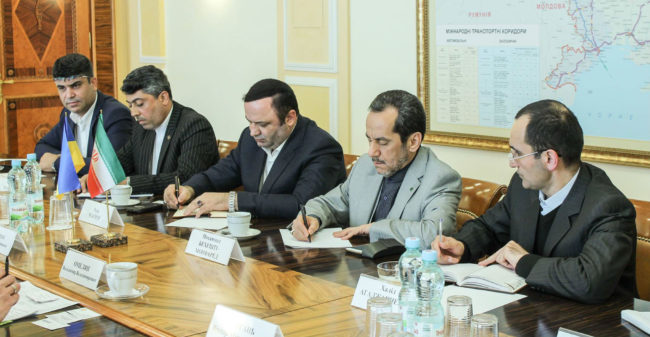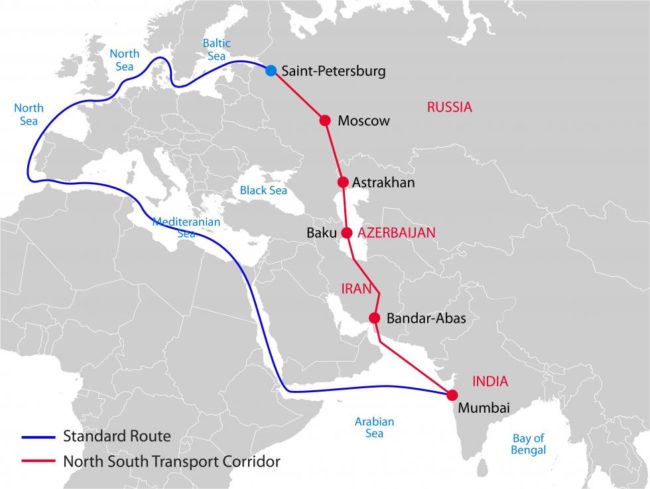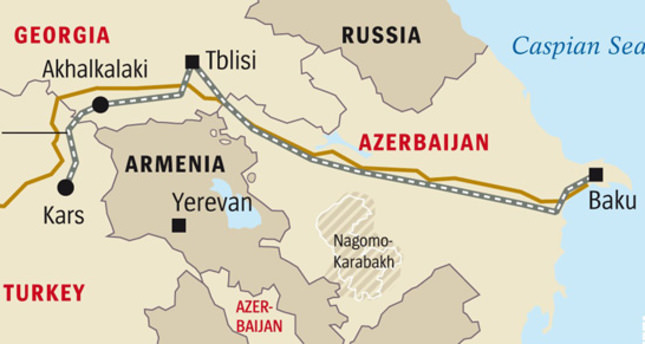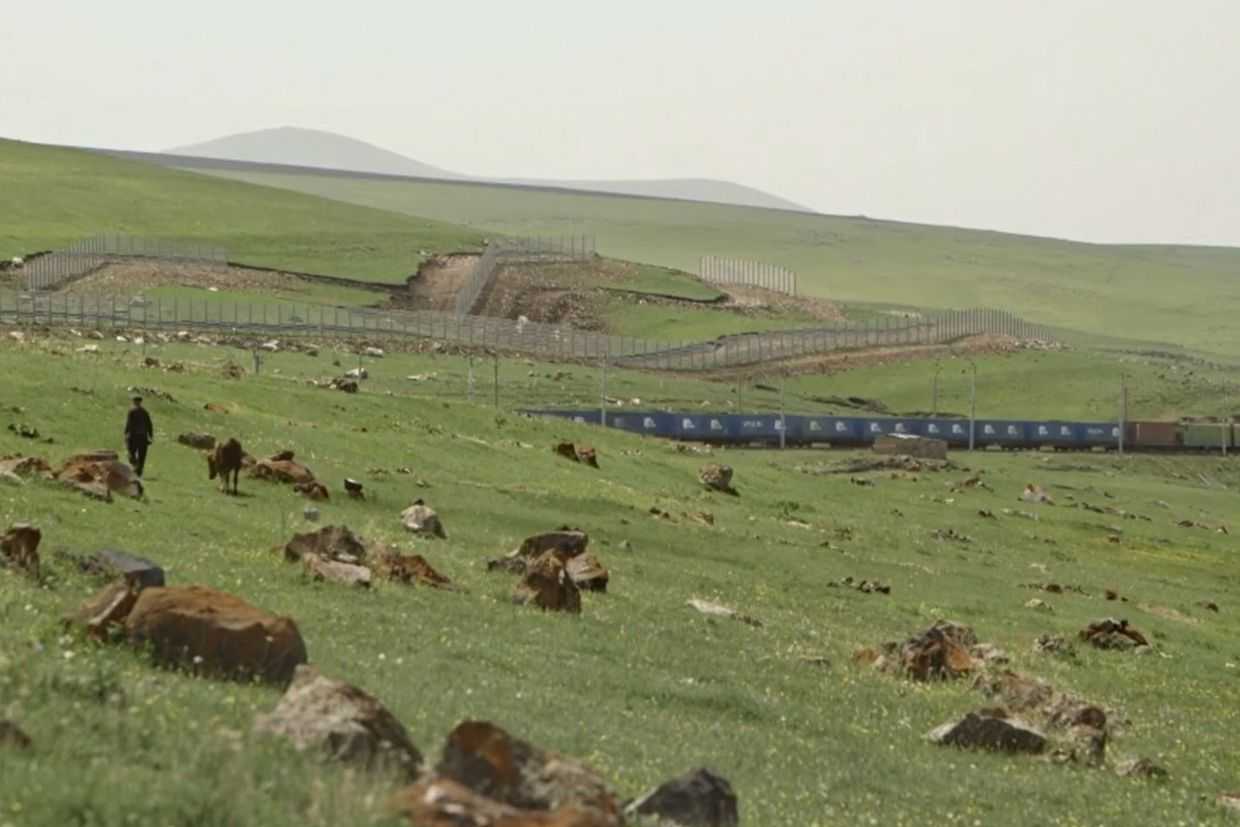

 Ukraine is to begin transporting agricultural products to Iran by railway, passing through Georgia and Azerbaijan, according to Ukraine’s Minister of Infrastructure, Volodymyr Omelyan.
Ukraine is to begin transporting agricultural products to Iran by railway, passing through Georgia and Azerbaijan, according to Ukraine’s Minister of Infrastructure, Volodymyr Omelyan.
Omelyan, met with a delegation from Iran in Kiev on 19 April, where they reached the agreement.
‘This is a very promising area of cooperation for both countries. Ukraine is developing new international transport corridors in order to become a reliable transit bridge between Europe, Asia and the East’, he remarked.
The first trains could begin to transport wheat to Iran in the summer of 2017, he added.
The announcement came amid a flurry of proposals for new trade routes connecting Europe and Asia through the South Caucasus.

In August 2016, eight months after sanctions were eased on Iran, a meeting was held in Azerbaijan between the presidents of Russia, Iran, and Azerbaijan, and a new North-South Trade Corridor (NSTC) was agreed upon.
The NSTC would run between India and Europe, through Iran the South Caucasus and Russia, but would bypass Georgia and the Black Sea.
Another route, the Baku-Tbilisi-Kars railway line, is already nearing completion. It will connect Azerbaijan, Georgia, and Turkey’s railways, enabling goods from Asia to be transported to Europe through a new tunnel under the Bosphorus Strait.
According to Ahmet Arslan, Turkey’s Minister of Transport, the Baku-Tbilisi-Kars railway will launch in June 2017, and will provide an uninterrupted transport corridor from China to London.

Iran’s Foreign Minister, Javad Zarif, discussed transport corridors with his Georgian counterpart, Mikheil Janelidze, during his recent visit to Georgia on 17–18 April. After the meeting, Zarif proposed that another new transport corridor could be created, if Iran, Georgia, Azerbaijan, and Armenia cooperated.
He said that a corridor between the Persian Gulf and Black Sea would bring the world closer, and decrease the price shipping.
On 22 April, during the Georgian Prime Minister’s visit to Tehran, Iran’s First Vice-President Eshaq Jahangiri reiterated during a joint press-conference that Tehran and Tbilisi share common viewpoints on regional and international issues, including the North-South corridor.
He said that the main topic of their discussions had been the linking the Persian Gulf to the Black Sea.








